
Amira Benhima
A passionate advocate for holistic wellness and natural beauty, is an accomplished author specializing in the benefits and uses of Argan oil, with years of experience exploring its wonders.
Key Takeaways
Have you struggled with hormonal acne for years, trying countless products and treatments with little success? Well, get ready to discover a game-changer. Argan oil, yes, that’s right, argan oil, may just be the answer you’ve been searching for. This miracle oil has been hailed for its ability to tackle hormonal acne head-on, but how does it work? And what are the best ways to incorporate it into your skincare routine? In this discussion, we’ll explore the science behind argan oil’s acne-fighting properties and provide you with practical tips on how to use it effectively. So, get ready to say goodbye to stubborn hormonal acne and hello to clearer, healthier skin.
- Argan oil regulates sebum production and moisturizes skin, reducing the likelihood of hormonal acne.
- It contains antioxidants and vitamin E, which lower inflammation and aid in skin healing for acne relief.
- Argan oil balances the hydrolipidic layer and prevents acne breakouts by keeping the skin hydrated.
- It can be combined with other acne-fighting ingredients like salicylic acid or tea tree oil for enhanced effectiveness.
The Causes of Hormonal Acne

Hormonal acne is primarily caused by fluctuations in hormone levels, especially androgens like testosterone. These hormones can stimulate the sebaceous glands, which are responsible for producing oil in the skin. When there is an increase in androgen levels, the sebaceous glands produce more oil than necessary, leading to clogged pores and acne.
Hormonal acne can occur during various stages of life, such as puberty, menstrual cycles, pregnancy, and menopause. During these times, hormone levels fluctuate significantly, which can trigger the development of acne. In puberty, for example, the body undergoes hormonal changes as it matures, leading to an increase in androgen levels and, consequently, acne breakouts.
Stress, diet, and certain medications can also influence hormone levels and contribute to hormonal acne. High levels of stress can disrupt the delicate balance of hormones in the body, potentially leading to acne flare-ups. Similarly, an unhealthy diet that is high in refined sugars and unhealthy fats can impact hormone levels and contribute to the development of acne.
Certain medications, such as hormonal birth control or corticosteroids, can also affect hormone levels and increase the likelihood of developing hormonal acne. It is important to consult with a healthcare professional if you suspect that your acne is related to medication.
Understanding the underlying hormonal imbalances is crucial in effectively managing and treating hormonal acne. By addressing these imbalances, whether through lifestyle changes, hormonal therapies, or natural remedies like argan oil, you can help reduce the occurrence and severity of hormonal acne.
How Argan Oil Works for Acne Relief
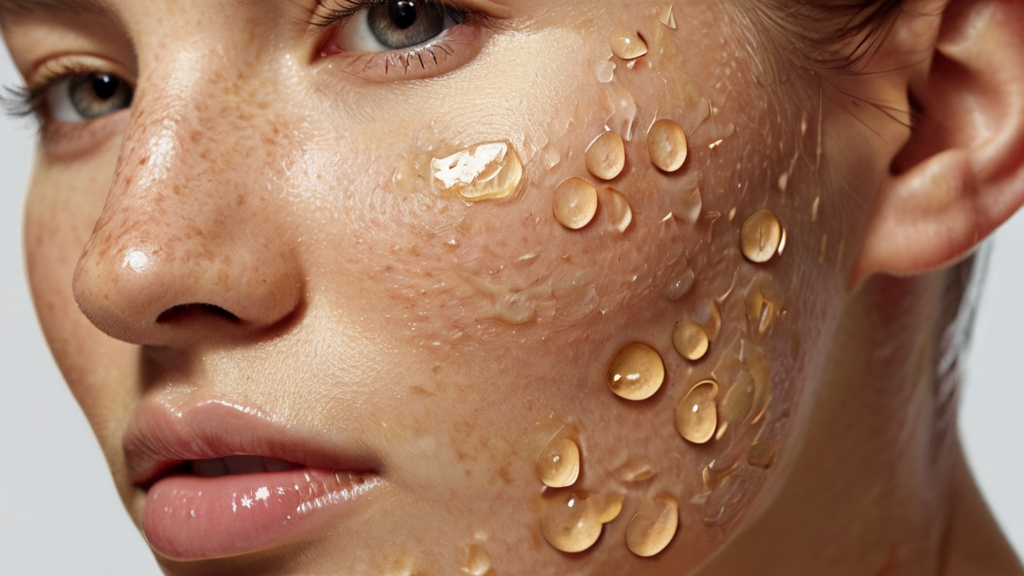
To understand how argan oil works for acne relief, it is important to explore its unique properties and mechanisms of action. Argan oil contains compounds that regulate sebum production, which is crucial for acne-prone skin. Excess sebum can clog pores and lead to breakouts, so by controlling sebum production, argan oil helps reduce the likelihood of acne.
Additionally, argan oil is rich in antioxidants, which play a crucial role in acne relief. These antioxidants help reduce inflammation and promote the healing of damaged skin cells. Inflammation is a common characteristic of acne, and by reducing it, argan oil aids in calming and soothing the skin.
Another key component of argan oil is vitamin E. Vitamin E has been shown to have soothing properties that can help alleviate irritation associated with acne. It also supports overall skin health and aids in the repair and rejuvenation of the skin.
Furthermore, the moisturizing properties of argan oil are beneficial for acne-prone skin. By providing hydration and maintaining the skin’s moisture balance, argan oil helps keep the skin supple and less prone to dryness. This is important because dryness can lead to increased oil production and potential acne breakouts.
Moreover, argan oil helps balance the hydrolipidic layer of the skin. This layer acts as a protective barrier and helps prevent bacteria and other impurities from entering the pores. By maintaining this balance, argan oil assists in preventing acne breakouts and promoting clearer, healthier skin.
Best Ways to Use Argan Oil for Hormonal Acne
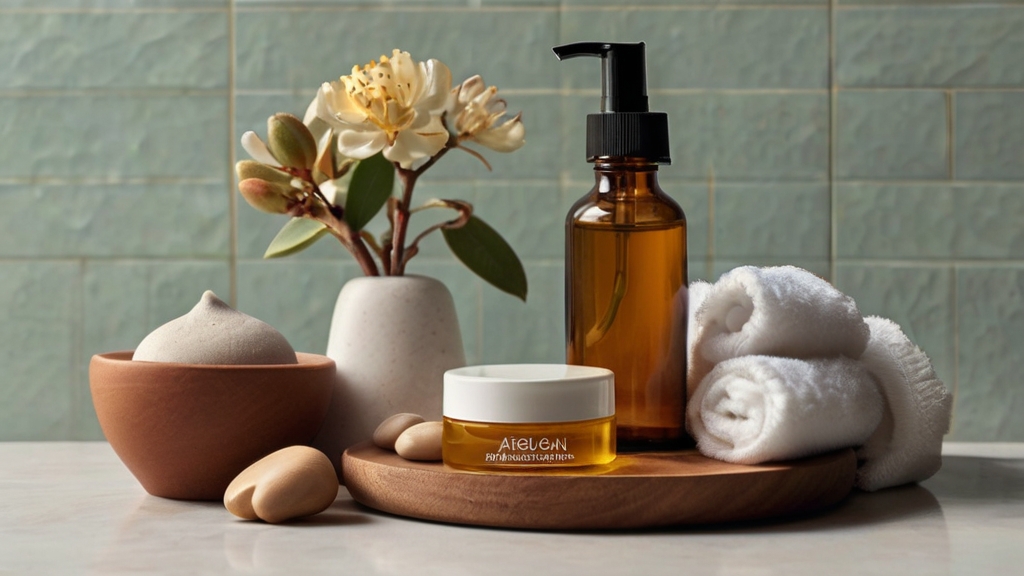
For optimal relief from hormonal acne, incorporating argan oil into your skincare routine can be highly beneficial. Here are the best ways to use argan oil for hormonal acne:
- Balancing sebum production: Argan oil helps regulate the production of sebum, the oily substance that can contribute to hormonal acne. Applying a few drops of argan oil to your face can help keep your skin moisturized without causing excessive oiliness.
- Reducing inflammation: The anti-inflammatory properties of argan oil can soothe redness and swelling associated with hormonal acne. Gently massaging argan oil onto affected areas can help alleviate these symptoms and promote a calmer complexion.
- Healing acne scars: Thanks to its high vitamin E content, argan oil has the ability to fade acne scars caused by hormonal breakouts. Regularly applying argan oil to these areas can aid in the healing process and improve the overall appearance of your skin.
- Maintaining hydration: Despite its oil-based nature, argan oil is lightweight and easily absorbed by the skin. This makes it an excellent moisturizer for hormonal acne-prone skin, helping to maintain hydration without clogging pores or causing greasiness.
Other Natural Remedies for Hormonal Acne
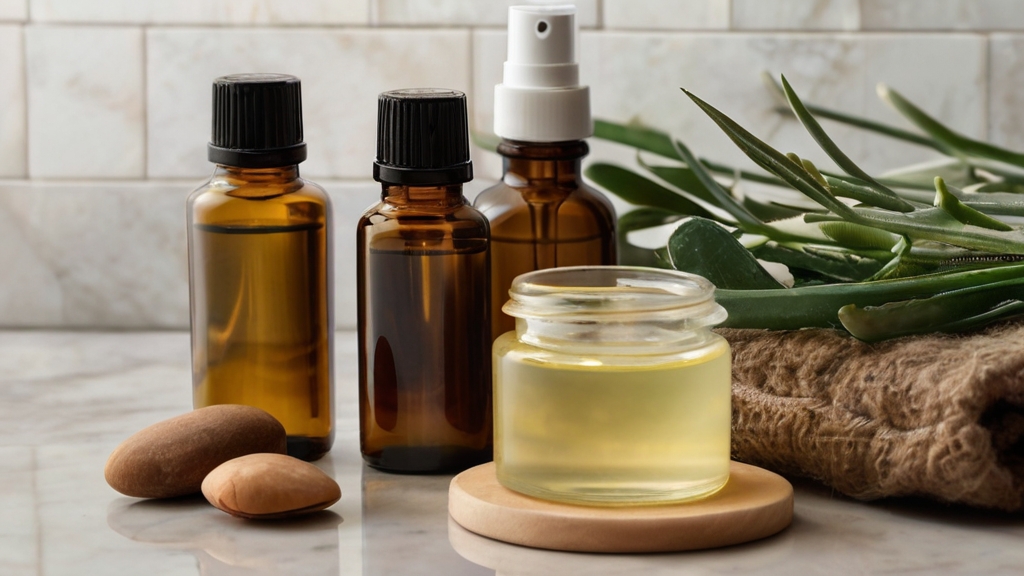
If you’re looking for additional natural remedies to complement the use of argan oil for hormonal acne relief, there are several other options worth considering. These remedies include tea tree oil, witch hazel, green tea extract, aloe vera gel, and salicylic acid.
Tea tree oil is known for its antibacterial properties, which can help reduce acne-causing bacteria on the skin. It can be applied topically to affected areas using a cotton swab. Witch hazel, on the other hand, is a natural astringent that can help tighten pores and reduce inflammation in acne-prone skin. It can be used as a toner or applied directly to pimples.
Green tea extract contains antioxidants that can soothe irritated skin and reduce redness associated with hormonal acne. It can be used as a facial mist or incorporated into DIY face masks. Aloe vera gel, with its anti-inflammatory properties, can calm and heal acne lesions while moisturizing the skin. It can be applied directly to the affected area or used as a natural moisturizer.
Lastly, salicylic acid, derived from willow bark, is a potent exfoliant that can penetrate the pores to unclog them and prevent acne breakouts. It is commonly found in cleansers, toners, and spot treatments.
Tips for Preventing Hormonal Acne
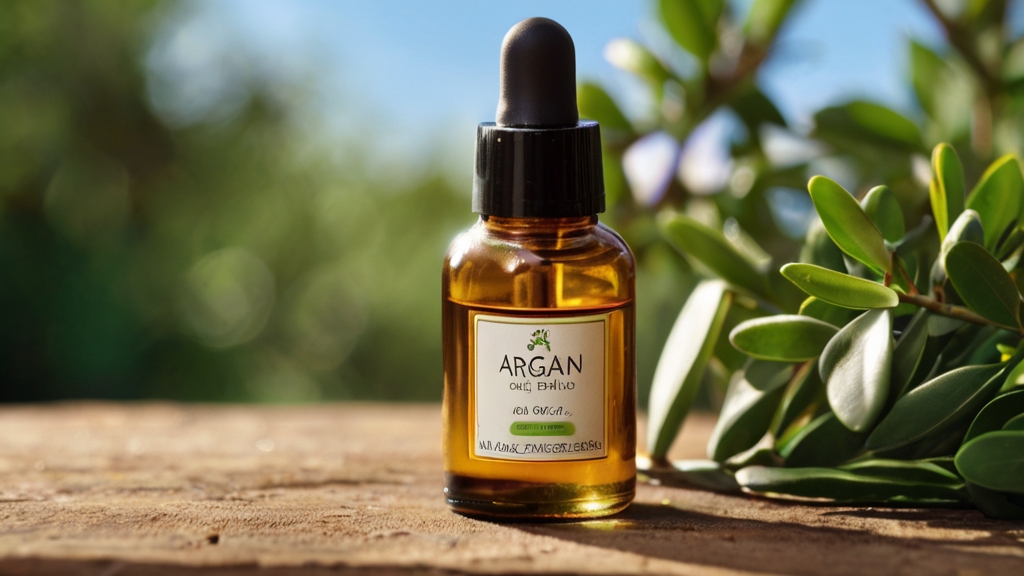
Maintain a balanced diet rich in antioxidants and omega-3 fatty acids to support hormone regulation and promote healthy skin. Here are some tips for preventing hormonal acne:
- Use non-comedogenic skincare products: Opt for products that won’t clog your pores, preventing acne breakouts caused by hormonal fluctuations. Look for labels that indicate non-comedogenic or oil-free formulations.
- Stay hydrated: Drinking plenty of water helps flush out toxins and keeps your skin hydrated, reducing the likelihood of acne flare-ups. Adequate hydration also helps maintain skin elasticity, which is important for preventing acne scars.
- Manage stress levels: High levels of stress can trigger hormonal imbalances and lead to acne breakouts. Engage in stress-reducing activities like yoga or meditation to help manage cortisol levels, which can contribute to hormonal acne.
- Consult a dermatologist: If you’re struggling with hormonal acne, it’s essential to consult a dermatologist for personalized advice and treatment options. They can recommend specific skincare products and medications tailored to your skin condition and help you develop a comprehensive acne prevention plan.
Incorporating these tips into your skincare routine can help reduce the occurrence of hormonal acne. Remember, Argan Oil for acne is also beneficial as it regulates sebum production and helps counteract the dryness caused by certain acne treatments. Additionally, consider incorporating Essential Oils of Rose, known for their antibacterial properties, into your skincare routine to help reduce acne-causing bacteria. These oils also contain vitamin A, a fat-soluble antioxidant that promotes healthy skin and counteracts inflammation associated with acne breakouts. By following these preventive measures and using natural remedies like Argan Oil and Rose Essential Oils, you can take proactive steps towards achieving clearer, healthier skin.
Final Thoughts on Using Argan Oil for Hormonal Acne
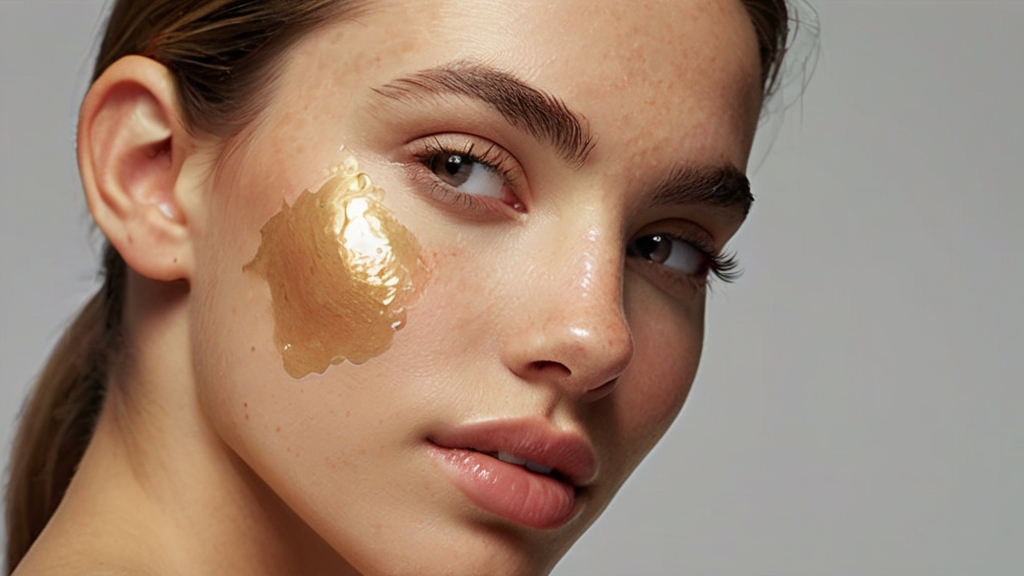
To fully understand the potential benefits of using argan oil for hormonal acne, it is important to consider its anti-inflammatory properties and ability to regulate sebum production. Argan oil’s anti-inflammatory properties can help soothe hormonal acne flare-ups, reducing redness and inflammation. This can be particularly beneficial for those experiencing painful and inflamed acne breakouts. Additionally, the high vitamin E content in argan oil can aid in healing acne scars and promoting skin regeneration. This can help fade the appearance of acne scars and improve overall skin texture.
One of the key factors in hormonal acne is the overproduction of sebum, which can lead to clogged pores and breakouts. Argan oil has the ability to regulate sebum production, making it an ideal choice for those with oily skin often associated with hormonal acne. By balancing sebum production, argan oil can help prevent excess oiliness and reduce the occurrence of breakouts.
When incorporating argan oil into a skincare routine for hormonal acne, it is important to consider hydration. Contrary to popular belief, oily skin still needs hydration to maintain a healthy balance. Argan oil provides hydration without clogging pores, making it a suitable choice for those with acne-prone skin. By keeping the skin adequately moisturized, argan oil can help prevent excessive oil production and maintain a healthier complexion.
It is worth noting that argan oil should not be used as a standalone solution for hormonal acne. Instead, it should be integrated into a comprehensive skincare routine that includes other acne-fighting ingredients. This can include ingredients like salicylic acid, benzoyl peroxide, or tea tree oil, which target acne-causing bacteria and help unclog pores. By combining these acne-fighting ingredients with argan oil’s soothing and sebum-regulating properties, you can create a more effective approach to managing hormonal acne.
Frequently Asked Questions
What Oil Is Best for Hormonal Acne?
For hormonal acne relief, the best oil options include tea tree oil, lavender oil, and jojoba oil. Tea tree oil benefits hormonal acne due to its antibacterial properties that target acne-causing bacteria. Lavender oil helps by calming inflammation and soothing irritated skin. Jojoba oil mimics the skin’s natural oils, reducing excess sebum production. These oils can be effective in treating hormonal acne and promoting clearer, healthier skin.
Is Argan Oil Good for Sensitive Acne-Prone Skin?
Yes, argan oil is good for sensitive acne-prone skin. Incorporating natural remedies like argan oil into your skincare routine can be beneficial. Argan oil is non-comedogenic and gentle on the skin, making it suitable for acne-prone individuals. Its anti-inflammatory properties help calm inflammation and reduce redness associated with acne. Additionally, argan oil helps balance sebum production, soothes irritated skin, and promotes healing of blemishes. Consider using argan oil as part of your skincare routine to address your acne concerns.
What Is the Disadvantage of Argan Oil on Face?
Using argan oil on your face may have some disadvantages. It has the potential to irritate your skin, cause excessive oiliness, and clog your pores, leading to increased breakouts. If you have sensitive skin, it may be more prone to react negatively to argan oil. Additionally, argan oil may be ineffective for severe acne and could interfere with acne medications. Some people may also experience allergic reactions to argan oil, which can slow down the healing process for acne. Consider the cost effectiveness of argan oil before using it for hormonal acne relief.
Can Argan Oil Get Rid of Acne Scars?
Yes, argan oil can help get rid of acne scars. It is a natural remedy that has benefits for the skin. Hormones play a role in acne development, but using argan oil can help prevent hormonal acne. You can make DIY argan oil face masks for acne-prone skin. The science behind argan oil’s effects on acne scars lies in its ability to promote cell regeneration and skin elasticity. Other oils can also help fade acne scars, but argan oil is a popular choice. When using argan oil on acne scars, it is important to apply it effectively and consistently. Many people have had success using argan oil for acne scar relief.
Related Articles
Topical Argan Oil Application for Acne
Get ready to discover the golden secret to banishing acne with topical Argan oil that will leave you wanting more.
Vegan Argan Oil Skin Moisturizer Brands
Looking for a vegan argan oil skin moisturizer brand that will leave your skin feeling nourished and hydrated? Find out which top brand starts with the letter 'F'!
Blending Argan Oil With Other Acne Remedies
Knead your way to clearer skin as we explore the powerful combination of argan oil and other acne remedies, revealing the secrets to a healthier complexion.


